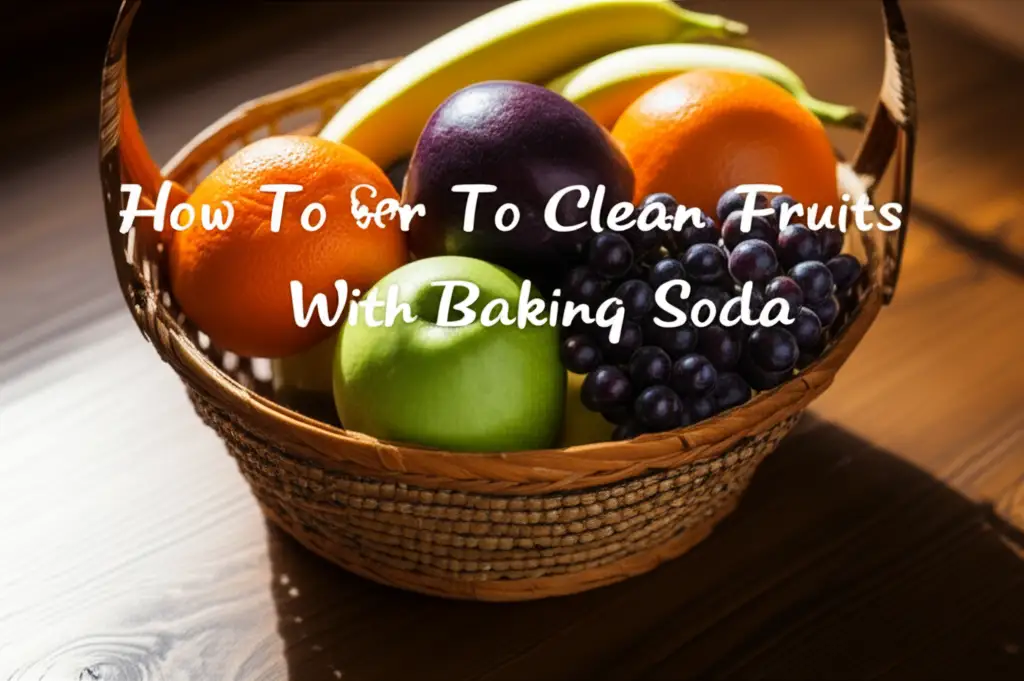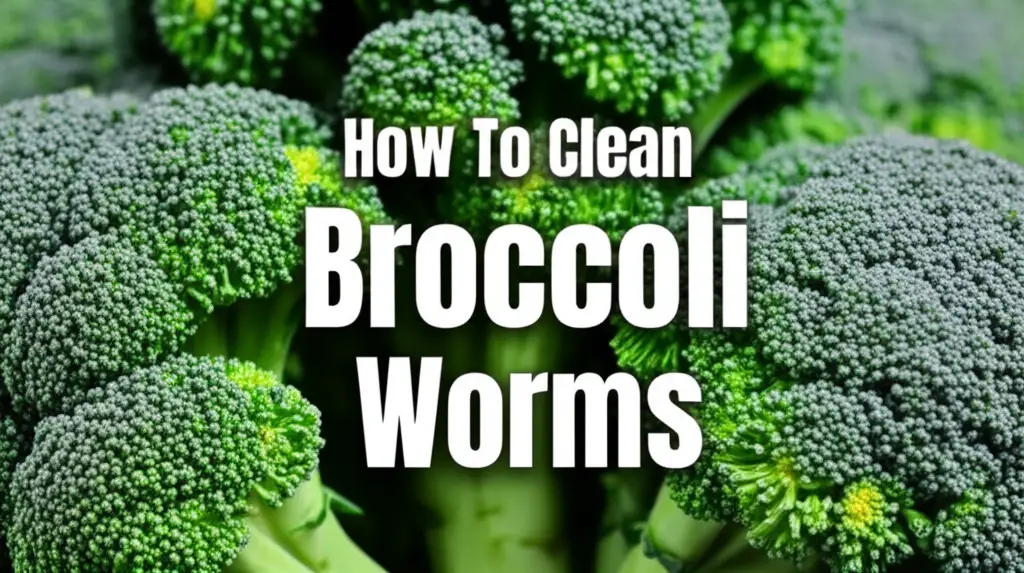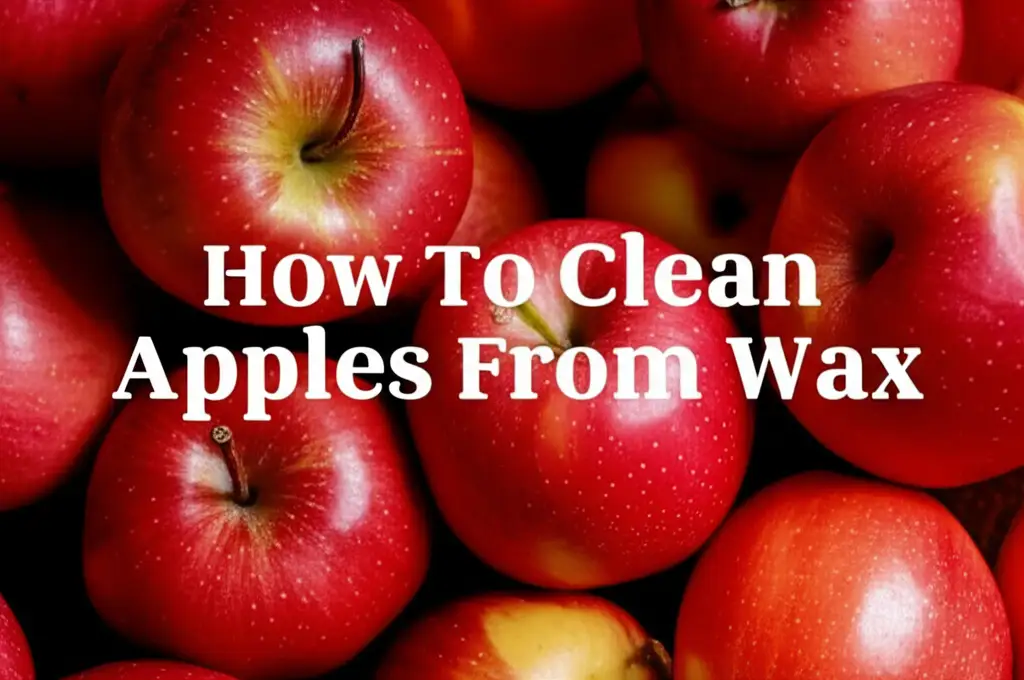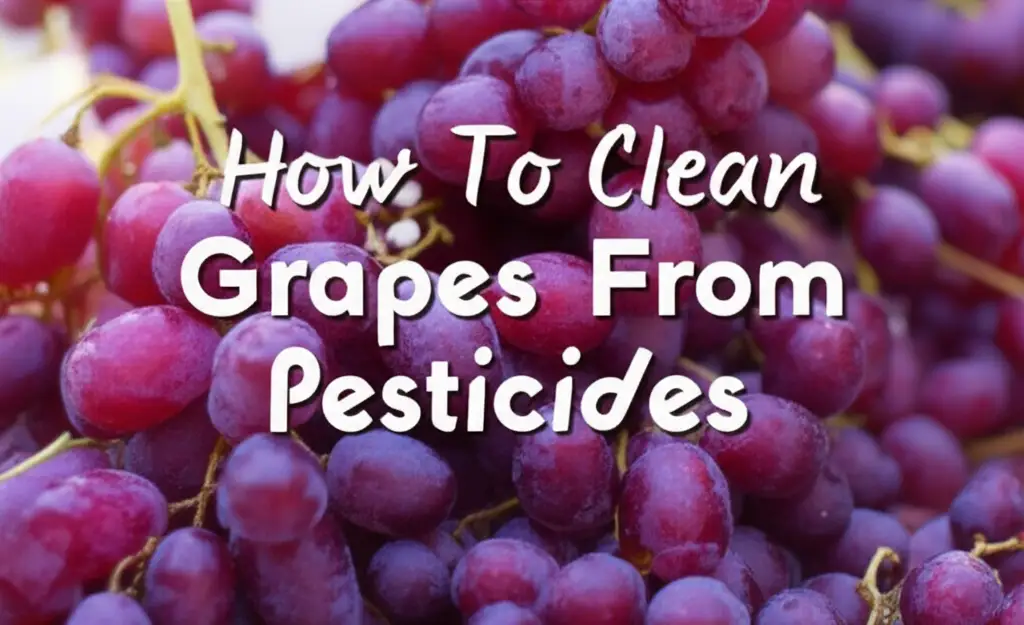· Food Safety · 14 min read
How To Clean Grapes With Baking Soda
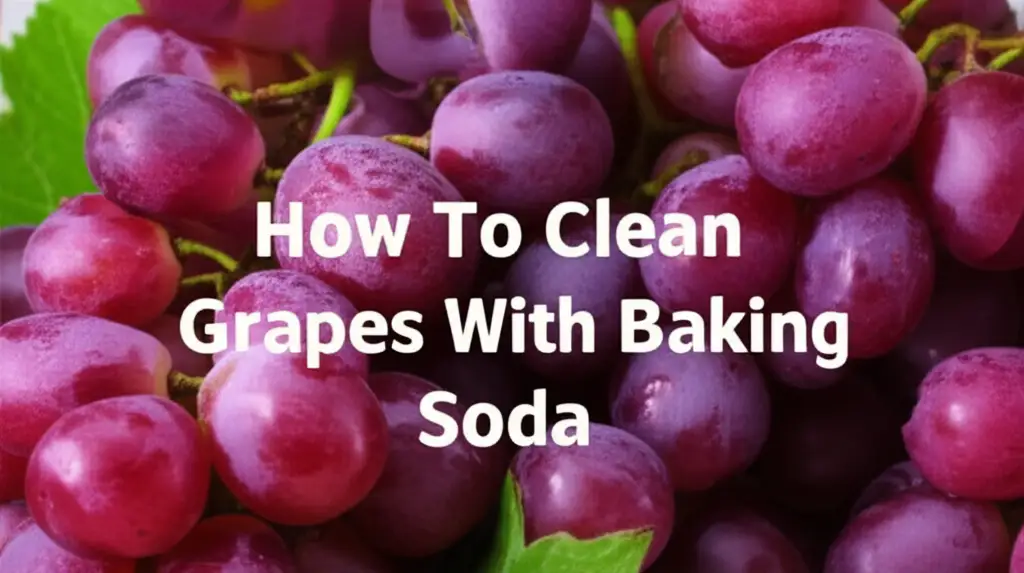
Unlock Sparkling Grapes: How to Clean Grapes with Baking Soda
Have you ever wondered if plain water truly gets your grapes clean? Many people rinse their fresh produce under the tap and think it is enough. However, grapes can carry more than just surface dirt. They often have residues from pesticides, wax coatings, and other contaminants from farm to table. Learning how to clean grapes with baking soda offers a simple and highly effective solution. This natural cleaner helps remove unwanted substances, ensuring your grapes are not just visually clean but truly pristine and safe to eat. In this article, I will show you why cleaning grapes properly matters. We will explore the power of baking soda for produce. I will guide you through a simple step-by-step cleaning process. You will also learn storage tips and common mistakes to avoid.
Takeaway
- Use baking soda to remove pesticides and wax from grapes.
- Soak grapes in a baking soda solution for a short time.
- Rinse grapes thoroughly under running water after soaking.
- Always dry grapes completely before storing them to prevent mold.
Clear, Concise Answer
To clean grapes with baking soda, dissolve 1 teaspoon of baking soda in 4 cups of water. Soak grapes in this solution for 5-10 minutes. Gently swish them around. Rinse thoroughly under cold running water. This method helps remove pesticides, dirt, and wax, making your grapes safe to eat.
Why Cleaning Grapes Matters: Beyond Just Dirt
You buy fresh, plump grapes from the store. They look perfect. Many people simply rinse them under water. They believe this action cleans the grapes. However, this is often not enough. Grapes, like many fruits, can carry unseen contaminants.
Grapes often have pesticide residues. Farmers use these chemicals to protect crops from pests. These residues can remain on the fruit’s skin. Even organic grapes can have some natural or allowed substances on them. You cannot see these residues with your eyes.
Waxes are another common coating on grapes. Growers apply these waxes for various reasons. Waxes help prevent moisture loss. They make grapes look shiny. This improves their shelf appeal. While some waxes are natural, others are synthetic. You want to remove these layers before eating the fruit.
Dust and dirt also cling to grapes. They pick up these particles during harvesting and transport. Microorganisms can also settle on their surfaces. Simple water rinsing might remove visible dirt. It often leaves behind the more stubborn, invisible layers. This means you consume these residues with your grapes. Proper cleaning helps ensure you eat clean, safe fruit. This practice protects your health.
The Power of Baking Soda for Fruit Cleaning
Baking soda is a common household item. It is also a powerful natural cleaner. Its chemical name is sodium bicarbonate. This substance has unique properties. These properties make it excellent for cleaning fruits like grapes.
Baking soda works in several ways. It is mildly abrasive. This helps it gently scrub away surface contaminants. It does not damage delicate fruit skins. Its alkaline nature also helps break down certain residues. Many pesticides and waxes have acidic components. Baking soda neutralizes these substances. This helps them detach from the grape skin more easily.
Compared to commercial fruit washes, baking soda is natural. It is food-grade. This means it is safe for consumption in small amounts. You do not introduce new chemicals to your food. Commercial washes can sometimes leave their own residues. Baking soda provides a simple, chemical-free alternative. It effectively lifts away stubborn films. These films include pesticides and dirt. It also works well on other produce. For example, you can use baking soda to clean strawberries. It also works wonders to clean blueberries.
Using baking soda also helps with odors. It neutralizes smells, leaving fruit fresh. It is an affordable option too. Most homes already have baking soda in their pantry. This makes it an accessible and practical choice. You get truly clean grapes without harsh chemicals. This method ensures peace of mind with every bite.
Step-by-Step Guide: How to Clean Grapes with Baking Soda Effectively
Cleaning grapes with baking soda is a simple process. It does not require special equipment. You can do it quickly before enjoying your fruit. Follow these steps for sparkling clean grapes.
Gather Your Supplies
First, collect what you need. You will need a large bowl. A colander is also essential for rinsing. Of course, you need your grapes. And the star of the show: baking soda. Make sure your baking soda is fresh.
Prepare the Soaking Solution
Measure out your water and baking soda. For a typical bunch of grapes, use about 4 cups of water. Add 1 teaspoon of baking soda to the water. Stir the mixture well. Ensure the baking soda dissolves completely. A clear, slightly cloudy solution is ideal. You want an even distribution of the cleaning agent.
Soak and Swirl
Place your grapes into the baking soda solution. You can detach them from the stems if you wish. This allows for more thorough cleaning. However, it is not strictly necessary. Let the grapes soak for 5 to 10 minutes. During this time, the baking soda works its magic. It breaks down residues. Gently swish the grapes around in the solution. You can use your hand for this. This gentle agitation helps dislodge dirt and pesticides. You might even see a cloudy film appear in the water. This is a good sign. It shows that the baking soda is pulling contaminants off the grapes.
Rinse Thoroughly
After soaking, lift the grapes from the solution. Place them into your colander. Rinse them under cold, running water. Be generous with the water. You want to wash away all the baking soda solution. This also removes any loosened dirt or pesticide residues. Rinse for at least 30 seconds to a minute. Ensure no baking soda residue remains on the grapes. This step is critical for taste and texture.
Dry and Enjoy
After rinsing, gently pat the grapes dry. You can use a clean towel or paper towels. Excessive moisture can lead to mold. This is especially true if you plan to store them. Once dry, your grapes are ready to eat. They will look cleaner. They will also feel cleaner. And most importantly, they will be much safer to consume. This simple process makes a big difference. It helps you enjoy healthier snacks. This same method works well to clean other fruits and vegetables too.
Optimal Soaking Times and Rinsing Techniques
Getting the right balance in cleaning grapes is important. The soaking time impacts how well contaminants are removed. The rinsing technique ensures no residue remains. Understanding these steps helps you achieve perfect results.
Soaking grapes in baking soda solution requires care. A 5 to 10-minute soak is usually ideal. This duration allows the baking soda to act effectively. It loosens pesticide residues and wax coatings. Soaking for too short a time might not be effective. It might leave contaminants behind. Soaking for too long can change the grape’s texture. Grapes can become mushy if they absorb too much water. They might also lose some of their crispness. Stick to the recommended time for best results. This ensures clean grapes without affecting their quality.
Rinsing is just as important as soaking. Thorough rinsing removes all traces of baking soda. It also washes away the dislodged contaminants. Use cold, running water for rinsing. Place the soaked grapes in a colander. Hold the colander under the faucet. Allow the water to flow over the grapes. Gently move the grapes around with your hands. This ensures all surfaces get rinsed. Continue rinsing for at least 30 seconds to 1 minute. You should feel the grapes become smooth. There should be no gritty feel from the baking soda.
After rinsing, proper drying is crucial. Excess moisture promotes mold growth. Gently pat the grapes dry with a clean cloth. You can also lay them out on paper towels. Let them air dry completely before storage or consumption. This step maintains their freshness. It also prevents spoilage. By following these guidelines, you ensure your grapes are perfectly clean. They will be free of unwanted substances and ready to enjoy.
Common Mistakes to Avoid When Cleaning Grapes
Cleaning grapes with baking soda is straightforward. Yet, some common mistakes can hinder the process. Avoiding these errors ensures the best outcome. You get truly clean and delicious grapes every time.
One common mistake is over-soaking grapes. Leaving grapes in the baking soda solution for too long can be detrimental. As mentioned earlier, grapes can absorb too much water. This leads to a mushy texture. They lose their pleasing snap. Aim for the 5-10 minute sweet spot. This duration is effective without compromising texture.
Another frequent error is insufficient rinsing. After the baking soda soak, a thorough rinse is essential. If you do not rinse enough, a powdery residue might remain. This can affect the grape’s taste. It might leave a slight soapy or bitter flavor. Always rinse under running water for at least 30 seconds. Make sure no white residue is visible.
Using too much baking soda is also a mistake. A little goes a long way. Excessive baking soda does not make grapes cleaner. It only increases the chance of residue. It also makes rinsing more challenging. Stick to the recommended ratio: 1 teaspoon per 4 cups of water. This concentration is effective and easy to rinse away.
Cleaning grapes before storage is a common but avoidable error. Grapes store best when dry. Washing them introduces moisture. This moisture creates an environment for mold and bacteria to grow. Always clean grapes just before you plan to eat them. If you must clean a larger batch, ensure they are completely dry before storing them. Proper drying prevents premature spoilage. These simple precautions help you enjoy perfectly cleaned grapes every time.
Storing Cleaned Grapes: Keep Them Fresh Longer
Once you clean your grapes, proper storage becomes vital. Correct storage keeps them fresh and prevents spoilage. It also helps maintain their taste and texture. Follow these tips to store your cleaned grapes effectively.
The most important step after cleaning is drying. Grapes must be completely dry before storage. Any remaining moisture encourages mold growth. Gently pat them dry with a clean paper towel. You can also spread them on a clean cloth. Allow them to air dry fully. This prevents a moist environment inside your storage container.
Store grapes in your refrigerator. The cold temperature slows down spoilage. Do not store grapes in an airtight container immediately after drying. Grapes need some air circulation. An airtight container traps moisture. This accelerates mold development. Instead, use a breathable container.
A good storage option is a perforated bag or container. You can use their original bag if it has holes. Or, use a container with a loose lid. You can also line a container with paper towels. The paper towels absorb any excess moisture. Place the grapes loosely in the container. Avoid packing them too tightly. This allows air to circulate around them.
Store grapes in the crisper drawer of your refrigerator. This area offers optimal humidity. It helps keep fruits fresh longer. Cleaned and properly stored grapes can last for about 5-7 days. However, consume them as soon as possible. Their quality is best right after cleaning. Proper storage ensures you enjoy your efforts. It provides fresh, clean grapes for longer periods.
Baking Soda Beyond Grapes: Versatile Cleaning Uses
Baking soda is not just for cleaning grapes. It is a true multi-purpose cleaner. Its gentle yet effective properties make it valuable throughout your home. From fruits to kitchens, baking soda offers many natural cleaning solutions.
You can clean other fruits and vegetables with baking soda. Berries like strawberries and blueberries benefit greatly. Leafy greens also become cleaner. A baking soda soak helps remove pesticides and dirt from all produce. This makes your entire produce section safer to eat. It is a simple switch for healthier eating habits.
In the kitchen, baking soda tackles many tasks. It is excellent for deodorizing. Sprinkle it in your refrigerator to absorb smells. You can also use it to clean your disposal. A paste of baking soda and water cleans countertops. It scrubs away grime without scratching surfaces. It also works well on sinks and stovetops. You can even use it to clean your coffee maker.
Baking soda is also effective for general household cleaning. It cleans and deodorizes drains. Combine it with vinegar for a fizzing action that clears minor clogs. For tougher kitchen grease, you can learn how to clean with vinegar and baking soda. It can refresh carpets. Sprinkle it on, let it sit, then vacuum. Baking soda removes odors from pet beds or smelly shoes. It can even polish silverware.
Baking soda is non-toxic. It is environmentally friendly. It is also very affordable. This makes it a smart choice for many cleaning needs. Keeping a large box of baking soda on hand is a good idea. It is a versatile tool. It helps you maintain a clean and fresh home naturally.
FAQ Section
Q1: Is baking soda safe for cleaning food?
Yes, baking soda is very safe for cleaning food. It is a food-grade ingredient. Many recipes use it as a leavening agent. It does not leave harmful residues. Any tiny amount remaining after proper rinsing is harmless. This makes it a natural and safe choice for washing produce.
Q2: Can I use vinegar with baking soda to clean grapes?
Using vinegar with baking soda is not ideal for cleaning grapes. When mixed, they react. This reaction creates mostly water and carbon dioxide. It neutralizes their cleaning power. For grapes, use baking soda alone. Vinegar can also alter the taste of delicate fruits. Stick to one method for best results.
Q3: How often should I clean my grapes?
Clean your grapes just before you plan to eat them. Washing them introduces moisture. This moisture can cause mold and spoilage. Grapes store best when they are dry. Only clean the amount you will consume immediately. This keeps the rest of your grapes fresh longer.
Q4: Does baking soda affect grape taste?
No, baking soda does not affect grape taste if rinsed properly. The key is thorough rinsing after the soak. This removes all baking soda residue. If you taste a soapy flavor, it means you need to rinse more. A good rinse leaves grapes tasting fresh and natural.
Q5: What if I don’t have baking soda? Are there alternatives?
If you lack baking soda, plain water is your basic option. For a more effective clean, you can use a diluted vinegar solution. Mix one part white vinegar with three parts water. Soak grapes for a few minutes. Rinse very thoroughly to remove any vinegar taste. However, baking soda remains a top choice for effectiveness and neutrality.
Q6: Can I clean other berries the same way?
Yes, you can clean most other berries using the same baking soda method. Strawberries, blueberries, and raspberries all benefit from a gentle baking soda soak. Remember to be very gentle with fragile berries. Always rinse thoroughly and dry well before eating or storing.
Conclusion
Cleaning your grapes properly is a simple step towards healthier eating. While a quick rinse under the tap might seem sufficient, it often misses hidden contaminants. Pesticides, waxes, and dirt cling to grape skins. These substances can impact your health and the fruit’s true flavor. Learning how to clean grapes with baking soda offers an effective and natural solution.
You have learned the powerful benefits of baking soda. This humble ingredient acts as a gentle abrasive. It also neutralizes residues. We walked through the easy step-by-step process. You now know to soak, swirl, and rinse thoroughly. We covered essential tips like optimal soaking times. We also discussed common mistakes to avoid. Proper drying and storage ensure your grapes stay fresh.
Baking soda proves its worth far beyond just grapes. It is a versatile cleaner for many fruits and household tasks. Incorporating this simple cleaning method into your routine makes a big difference. It helps ensure the fruit you eat is truly clean. You gain peace of mind knowing you are consuming safe, pure grapes. Try cleaning your grapes with baking soda today. Enjoy their sparkling cleanliness and pure taste.
- cleaning grapes
- baking soda
- fruit cleaning
- food safety
- pesticide removal

